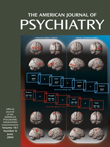Depression and Devic’s Syndrome
Ms. A, a 40-year-old woman of West Indian descent, had a history of depression. She was successfully treated with fluoxetine, 50 mg/day, at age 16 for mood symptoms related to body image. She experienced another episode of decreased mood and was treated successfully with citalopram, 20 mg/day. Later she experienced shoulder pain and leg paresthesia that progressed to debilitating generalized myalgia and optic neuritis. Then a diagnosis of Devic’s syndrome was confirmed on the basis of magnetic resonance imaging findings.After the onset of Devic’s symptoms, Ms. A’s mood deteriorated, and she fulfilled criteria for major depression, which was treated with an increase in citalopram to 40 mg/day. Subsequent to treatment with intravenous corticosteroids and a course of plasmapheresis, her neurological symptoms gradually improved, and her mood improved with the increased antidepressant dose and remission of the disease.Ms. A then relapsed acutely, with increased pain in addition to nausea, vomiting, vertigo, weakness, and light flashes in one eye. She experienced increased depressive symptoms concomitant with her acute neurological symptoms. Her most recent symptoms were treated with intravenous corticosteroids and plasmapheresis, and her regular medications included 1200 mg t.i.d. of gabapentin, 200 mg/day of carbamazepine, 40 mg/day of citalopram, 0.5 mg b.i.d. of clonazepam, 1–2 mg every 4 hours as needed of lorazepam, and morphine (patient-controlled analgesia). Upon review, these medications were determined to be justifiable, with no dependence on pain medication. Results of a review of her systems was negative for substance use, somatoform disorder, mania, anxiety, psychosis, dementia, delirium, and a current eating disorder. Her past medical history included various cosmetic surgeries, a cholecystectomy, an appendectomy, a tonsillectomy, an ovarian wedge resection, a gastrectomy, a tubal ligation, and bilateral glaucoma.
References
Information & Authors
Information
Published In
History
Authors
Metrics & Citations
Metrics
Citations
Export Citations
If you have the appropriate software installed, you can download article citation data to the citation manager of your choice. Simply select your manager software from the list below and click Download.
For more information or tips please see 'Downloading to a citation manager' in the Help menu.
View Options
View options
PDF/EPUB
View PDF/EPUBGet Access
Login options
Already a subscriber? Access your subscription through your login credentials or your institution for full access to this article.
Personal login Institutional Login Open Athens loginNot a subscriber?
PsychiatryOnline subscription options offer access to the DSM-5-TR® library, books, journals, CME, and patient resources. This all-in-one virtual library provides psychiatrists and mental health professionals with key resources for diagnosis, treatment, research, and professional development.
Need more help? PsychiatryOnline Customer Service may be reached by emailing [email protected] or by calling 800-368-5777 (in the U.S.) or 703-907-7322 (outside the U.S.).

